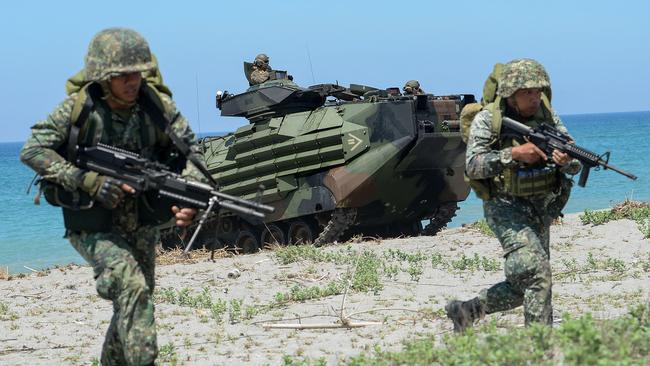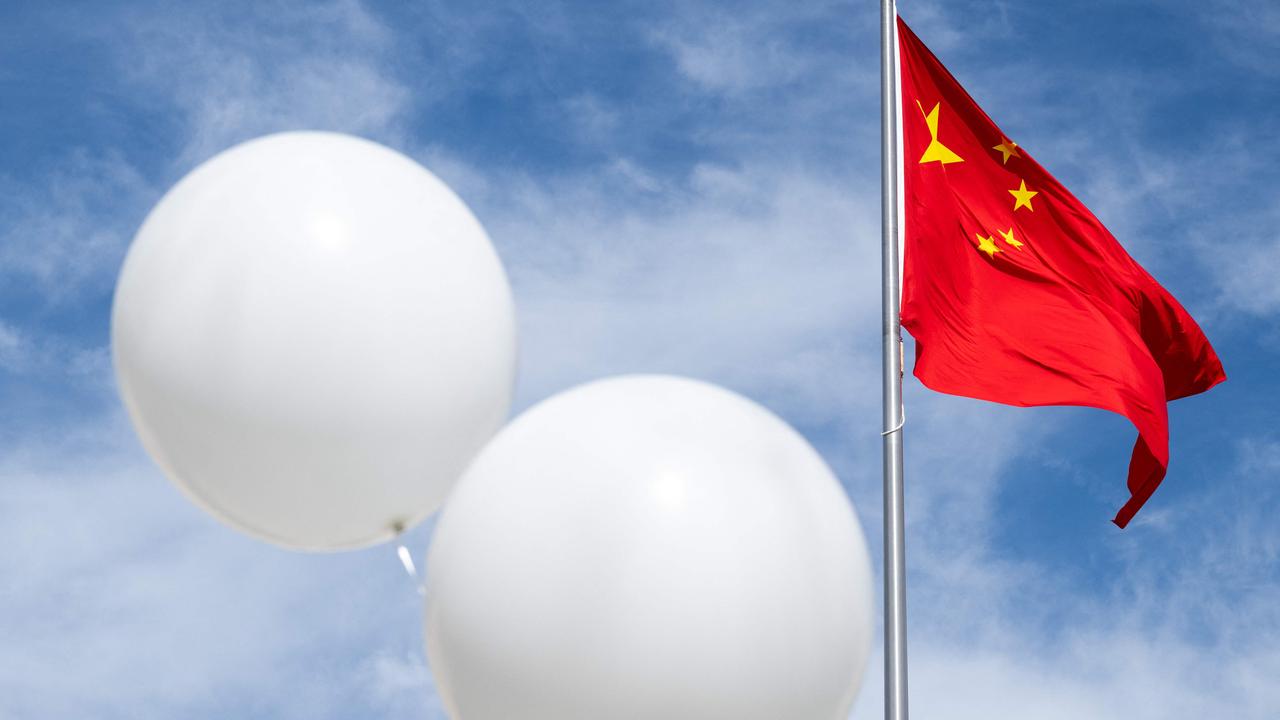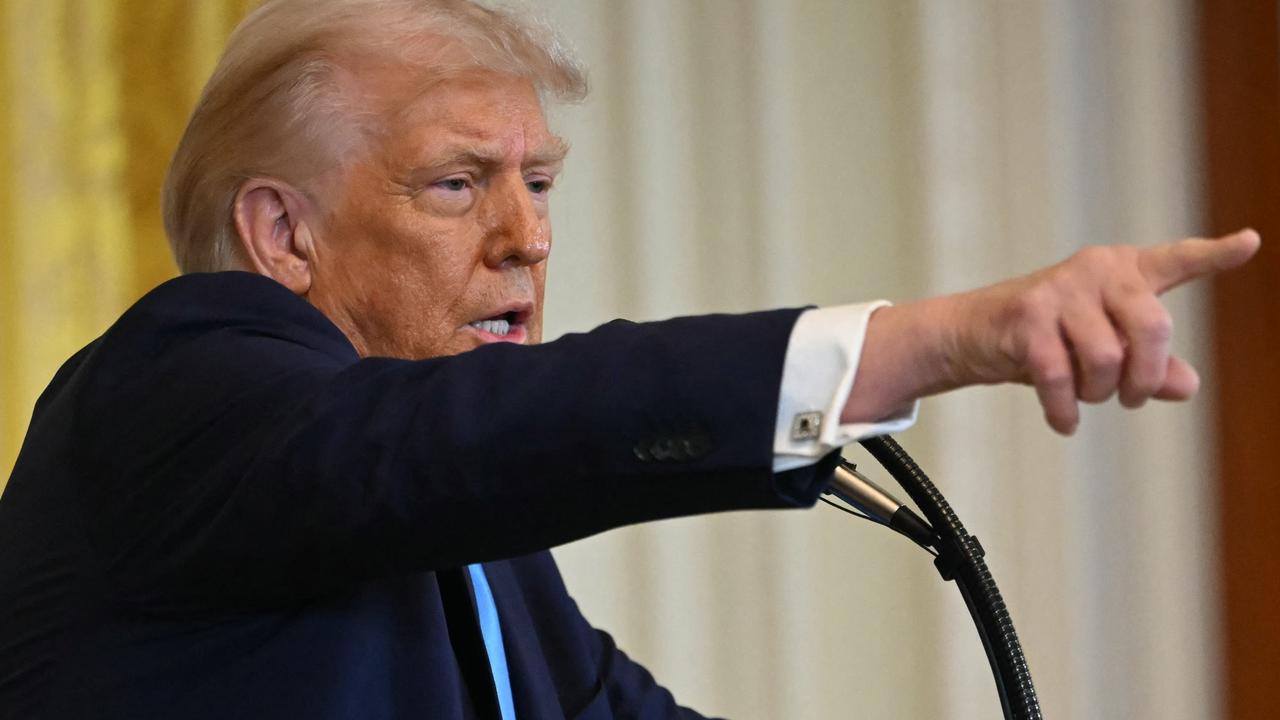Beijing backdown after threat to Philippines over Taiwan
China has been forced into an embarrassing backdown over threats made by its ambassador to The Philippines.

China has been forced into a rare backdown over veiled threats issued by its ambassador to The Philippines suggesting the safety of 150,000 migrant Filipino workers in Taiwan could be in jeopardy if Manila did not “unequivocally oppose Taiwan independence” and refuse US access to its bases.
The weekend comments triggered a ferocious backlash in The Philippines and warnings from the government and National Security Council against Chinese interference in domestic affairs, just as the US and Philippines armed forces are conducting their biggest-ever annual Balikatan defence exercises, including live fire drills in the South China Sea.
Philippines National Security Council spokesman Jonathan Malaya said the safety of all Filipino migrant workers was of paramount importance and the government took “grave exception to any effort by guests in our country to use this to fearmonger and intimidate us”.
Those sentiments were echoed in a statement from the defence ministry.
On Monday, the head of the Manila Economic and Cultural Office – which acts as a de facto consulate to Taiwan – was forced to issue assurances that Filipino workers in Taiwan were safe amid rising public concern.
“There is no cause for alarm. I would be the first one to tell you if there is an emergency situation, but right now there is no tension,” office chairman Silvestre Bello said. “All our Filipino community members are prepared for any exigency.”
Sensing a major misstep, Beijing has insisted ambassador Huang Xilian’s comments – suggesting the Philippines decision to allow visiting US forces access to four additional military bases under the Enhanced Defence Co-operation Agreement (EDCA) could undermine China’s aim of reunification with democratic Taiwan – were misconstrued.
But The Philippines’ reactions to the ambassador’s comments reflect a national fatigue with Beijing’s intimidation tactics – both in enforcing its discredited claims over most of the South China Sea and in corralling neighbouring countries into line over Taiwan – and a marked shift towards restrengthening Manila’s US ties.
The US military now has access to nine Philippine bases, including three northern facilities close to Taiwan and another in western Palawan province facing Chinese installations in the South China Sea, a key global shipping route.
Mr Huang criticised that decision at the Eighth Manila Forum on Friday night, advising The Philippines to “unequivocally oppose ‘Taiwan independence’ rather than stoking the fire by offering the US access to the military bases near the Taiwan Strait if you care genuinely about the 150,000 (overseas Filipino workers or OFW)”.
“Obviously, the US intends to take advantage of the new EDCA sites to interfere in the situation across the Taiwan Strait to serve its geopolitical goals, and advance its anti-China agenda at the expense of peace and development of The Philippines and the region at large,” he said.
“Some tried to find excuses for the new EDCA sites by citing the safety of the 150,000 OFWs in Taiwan, while China is the last country that wishes to see conflict over the strait because people on both sides are Chinese.
“But we will not renounce the use of force, and we reserve the option of taking all necessary measures. This is to guard against external interference and all separatist activities.”
China’s embassy in Manila has since attempted to “set the record straight” by issuing a transcript of the ambassador’s comments, which only confirmed the accuracy of previous reports.
Mr Huang’s speech – which also incorrectly drew parallels between the Taiwan situation and The Philippines’ Mindanao peace process in Muslim-majority Mindanao – have been widely ridiculed on social media.
Southeast Asia security analyst Collin Koh described them as “a great case study for diplomat training in how not to make veiled threats about the wellbeing of nationals belonging to the host country for your embassy”.
Mr Huang’s insistence that The Philippines would “never allow any third party to meddle with resolving rebel issues in Mindanao” also drew a wry reply from the Presidential Adviser on Peace, Reconciliation and Unity, noting Mindanao’s peace process was mediated by a third-party country to ensure the fairness and integrity of negotiations.
“We encourage countries with similar situations such as ours to follow the same path in resolving conflicts peacefully and not resort to unnecessary threat of force, intimidation and/or violence,” the office said.



